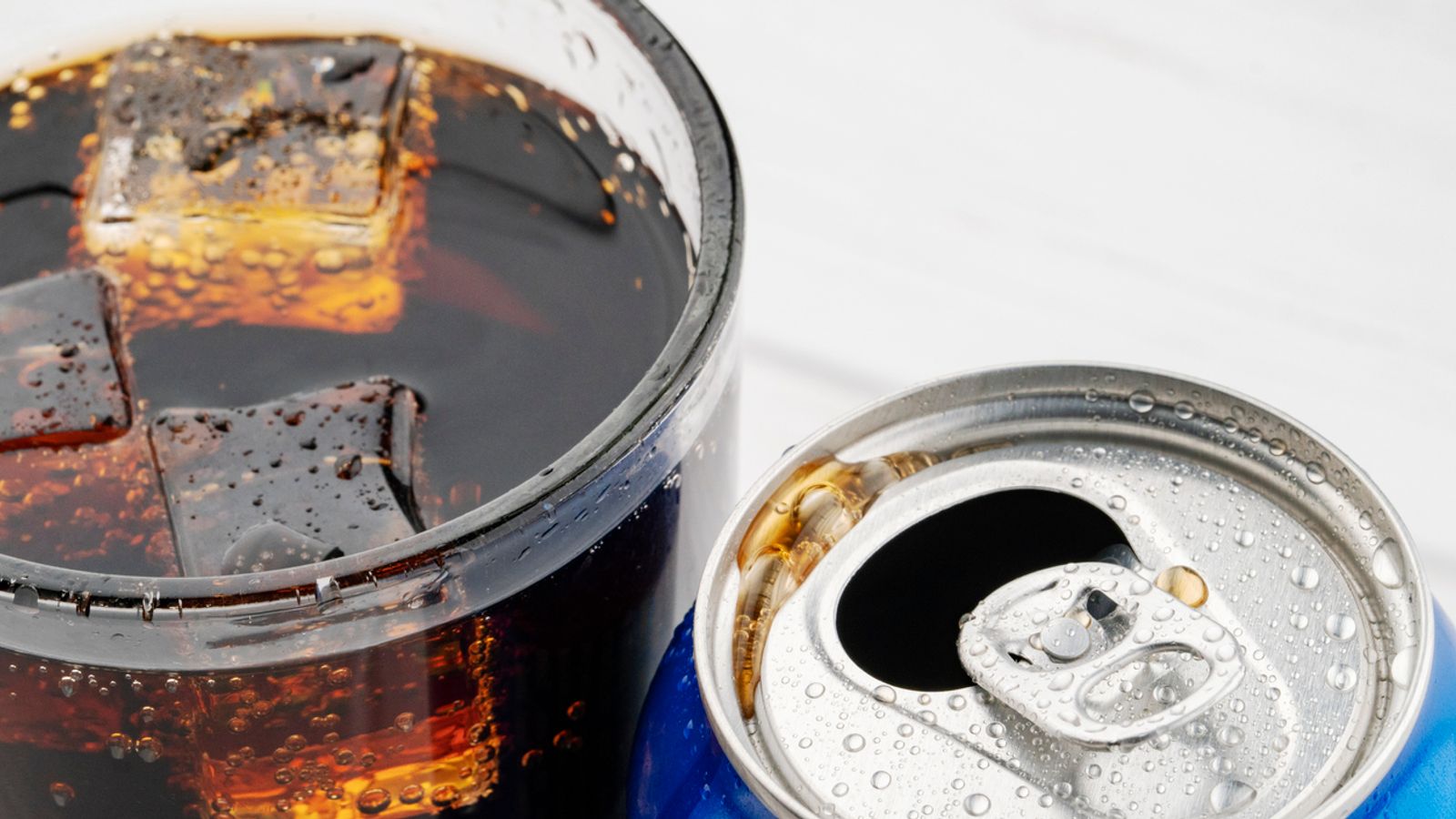Aspartame, a sweetener commonly found in diet drinks and chewing gum, has been declared a potential cancer risk by the World Health Organisation (WHO).
The sweetener has been listed as “possibly carcinogenic to humans”.
The International Agency for Research on Cancer (IARC), the WHO’s cancer research arm, said there was “limited evidence” aspartame caused cancer in humans.
“While safety is not a major concern at the doses which are commonly used, potential effects have been described that need to be investigated,” the WHO’s Dr Francesco Branca said.
And giving advice to the public, he added: “If consumers are faced with the decision of whether to take cola with sweeteners or one with sugar, I think there should be a third option considered – which is to drink water instead.”
If there’s limited evidence, why has the WHO made this declaration?
The scale used by the IARC indicates the level of evidence there is for a substance being carcinogenic.
The IARC uses four categories: 1 – causes cancer; 2A – probably causes cancer; 2B – possibly causes cancer and 3 – no evidence available on cancer risk.
Aspartame was classified as 2B, “possibly carcinogenic”, on the basis of limited evidence for cancer in humans (specifically hepatocellular carcinoma, a type of liver cancer).
Other possible 2B carcinogens in the group include aloe vera, bracken ferns, lead and working as a hairdresser.
The scale does not say how much exposure you need to raise your cancer risk – it just identifies the substances as hazards.
Alice Davies, health information manager at Cancer Research UK, told Sky News: “Something being classed as a carcinogen doesn’t tell you how much it could increase the risk of cancer.
“Sometimes there are things that might cause cancer in theory, but in reality the dose that you’re exposed to is too low to increase your risk.
“So, for example, processed meat and smoking are both carcinogens but smoking causes about 54,000 cases of cancer in the UK each year whereas processed meat only causes about 5,400.”
So how much aspartame can I have a day?
This is where another arm of the WHO comes in, the Joint WHO and Food and Agriculture Organisation’s Expert Committee on Food Additives – JECFA for short.
JECFA reviewed the data on aspartame consumption and said adults can safely consume up to 40mg per kilo of body weight.
This does not change the daily limits recommended previously.
That means an adult who weighs 70kg could consume 2,800mg of aspartame a day.
Aspartame is found in drinks including Coke Zero, Diet Coke, Diet Pepsi, Pepsi Max, Sprite Zero and Fanta Zero.
A can of diet drink typically contains about 200mg of aspartame. So a 70kg adult could drink 14 cans without going over the safe daily limit for aspartame.
What does a carcinogen do to your body?
Cancer is a disease of the cells, and a carcinogen is something that disrupts the way cells work.
A carcinogen might damage the cells themselves or it might damage your DNA, Ms Davies from Cancer Research UK said.
For example, a gene that normally prevents cells from replicating too much could be damaged, leading to cells multiplying uncontrollably.
Do I need to worry about aspartame causing cancer?
Rather than worry about things that might cause cancer, Ms Davies said it is better to address confirmed causes of cancer, such as smoking, alcohol and obesity.
“The most important thing really you can do to reduce your risk of cancer is to not smoke, to keep a healthy weight, have a healthy balanced diet, cut down alcohol and stay physically active.”
The Food Standards Agency (FSA) agrees. It says the JECFA report into aspartame is not something people should worry about, as long as they follow the advice that’s already out there.
Professor Robin May, the FSA’s chief scientific adviser, said: “JECFA’s report supports the FSA’s view that aspartame is safe to consume at current permitted use levels.”
The IARC and WHO will continue to monitor new evidence and encourage independent research groups to develop further studies on the potential association between aspartame and cancer.
The FSA said it welcomed this extra research, calling for “more and better studies” into the potential risks of aspartame consumption.

